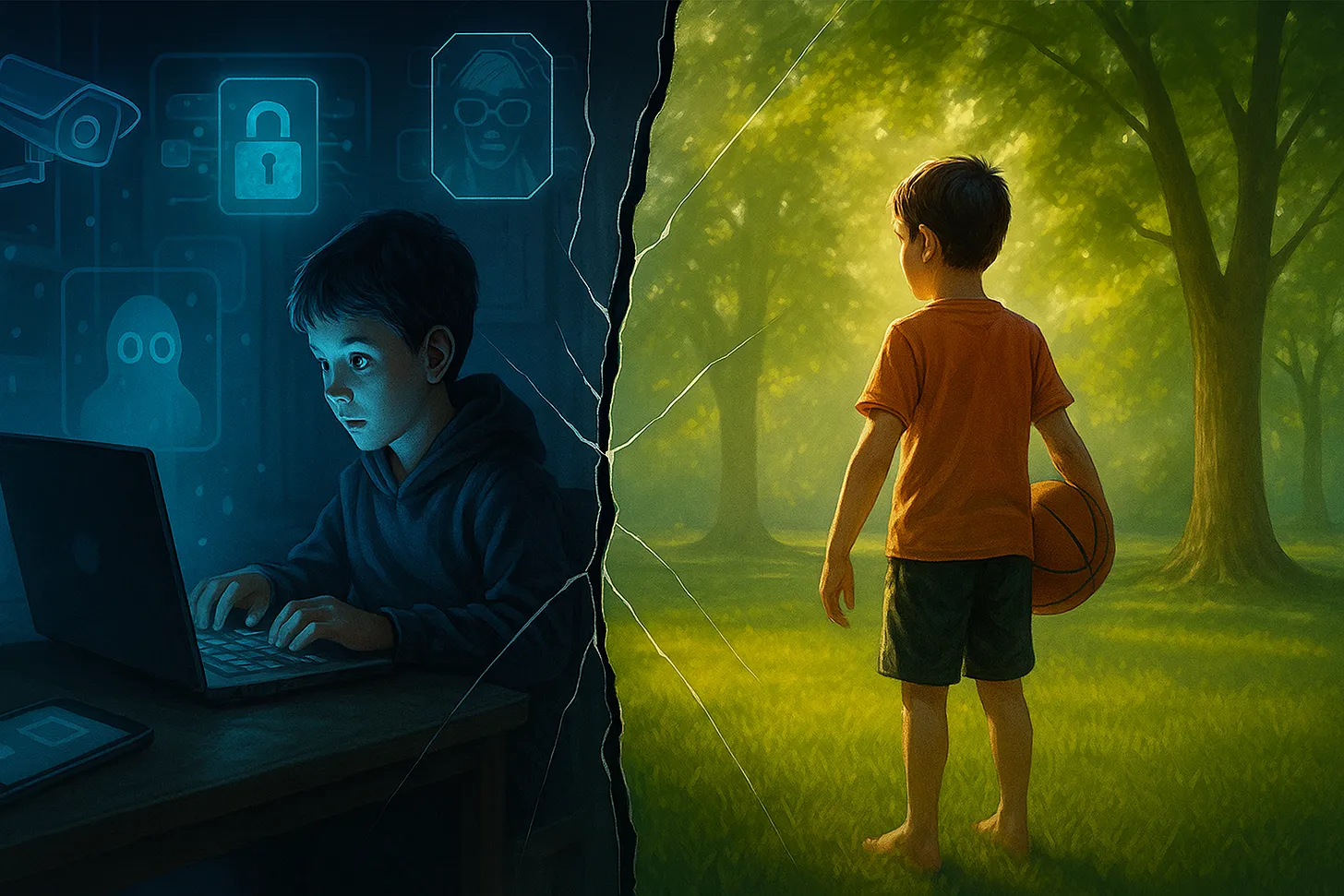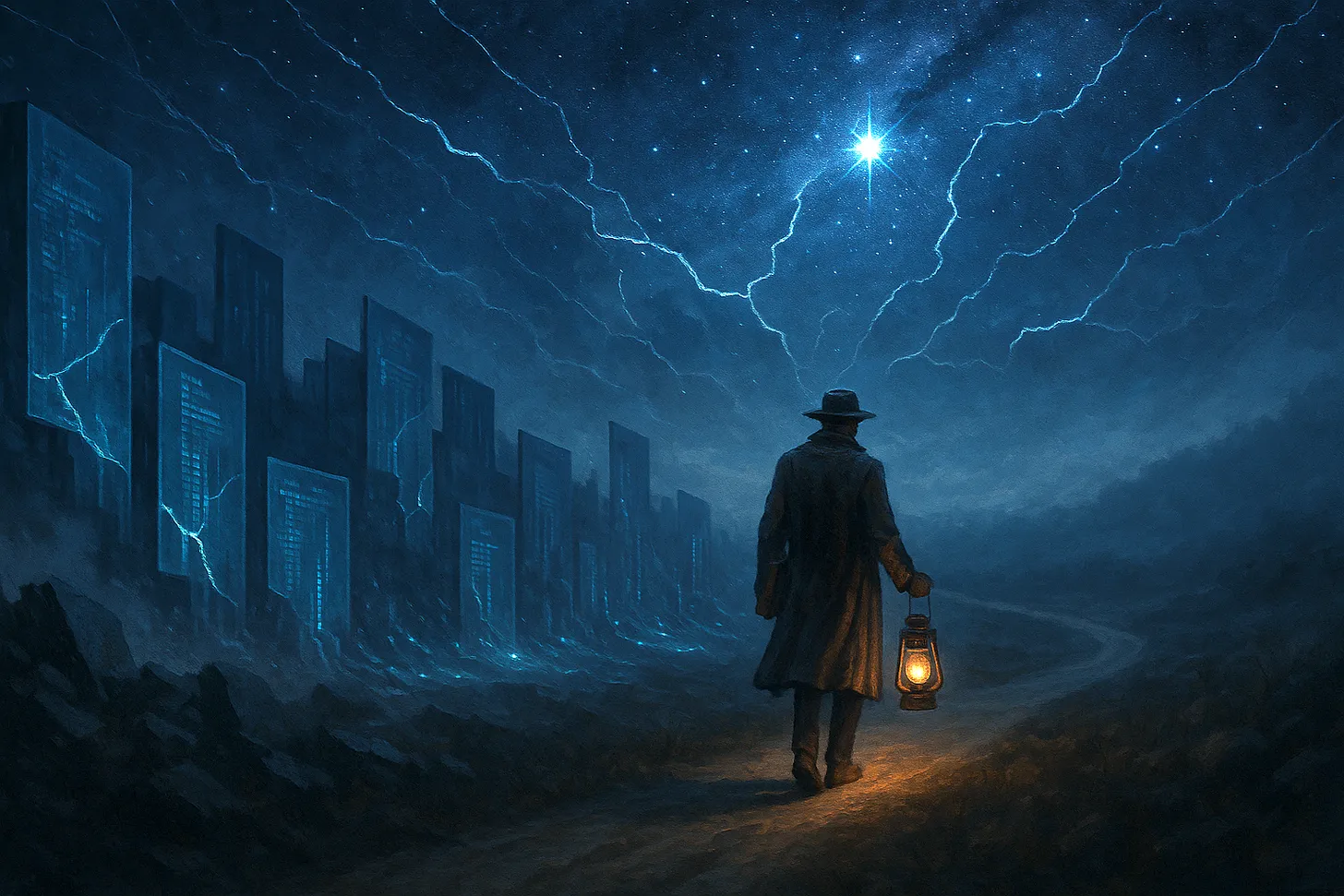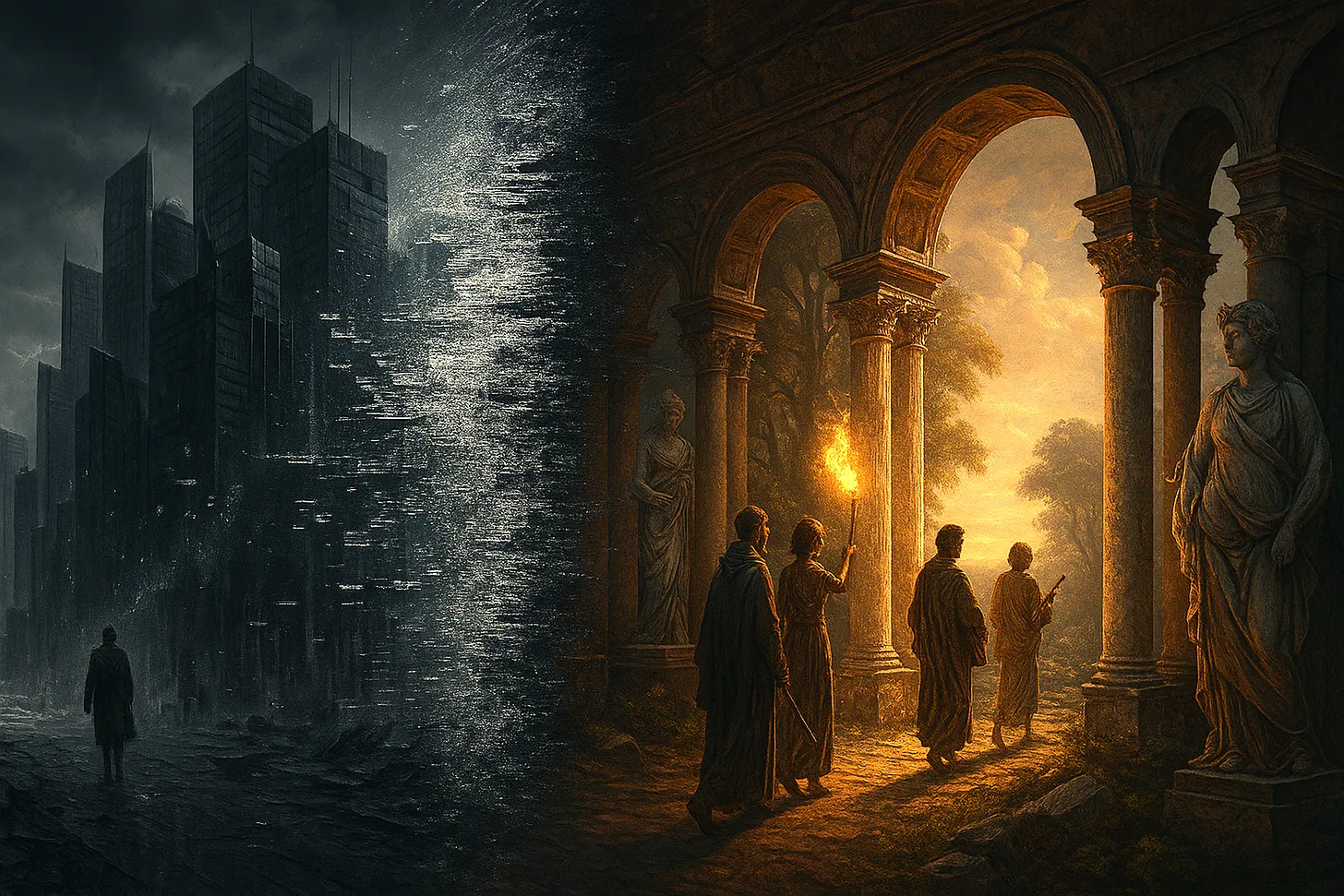Beauty is a paradox. It is as primal as it is constructed, as instant as it is unfolding. We sense it unconsciously, yet it’s endlessly dressed up, filtered, and paraded by a culture addicted to façades. In a world so saturated with illusion, the question of what is “real” beauty — and what is simply performance — becomes more than personal preference. It becomes a question of truth itself.
Tag: culture
From Safety Nets to Digital Traps: The Harvesting of Childhood
We are lulled into thinking that more surveillance, more devices, and more virtual safety nets will protect our children. Yet beneath the polished slogans and technological promises lies a darker truth: reality itself is being eroded, traded away for simulations and dashboards, and formative years are being harvested by algorithms. What is sold as safety may, in fact, be the very thing that leaves the next generation less resilient, less embodied, and less free.
The Rebirth of the Natural Philosopher
There is something stirring again, beneath the noise of curated narratives and the endless churn of consensus. We remember, not as nostalgia but as grounding — a memory of what was, before the enclosure. The natural philosopher re-emerges in this age of distortion, not as a relic of the past but as a witness, a wayfinder, a seeker who refuses the illusion and carries forward the fragments of truth left scattered in plain sight.
Copyright as a Weapon: Strikes, Claims, and Cultural Control
We live in a time where silence doesn’t fall by accident — it’s engineered. The voices that once stirred, questioned, and disrupted are now managed by algorithms and hidden behind claims of “fairness” or “safety.” What looks like protection is often just control in disguise, and the weight of it falls not on corporations but on individuals who dare to speak, create, or critique.
Uglification and the War on Authenticity
Art and beauty have always stood as mirrors to the human spirit — reflections of what uplifts, connects, and endures. Yet in recent times, much of what passes as “culture” seems inverted, hollowed, or deliberately distorted. In peeling back the layers of this narrative, what emerges is not just critique, but a call to discernment: to seek out what is authentic, to remember what resonates, and to notice where ugliness has been normalized.




